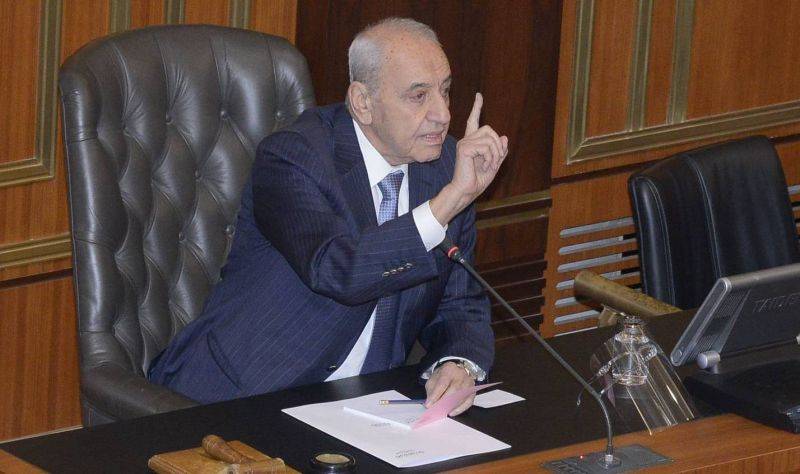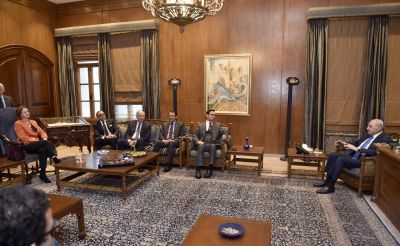
Lebanese Parliament Speaker Nabih Berri at the 11th Parliament session dedicated to electing a new Lebanese president, in Beirut on Jan. 19, 2023. (Credit: Ali Fawaz/Lebanese Parliament/Flickr)
BEIRUT — Parliament Speaker Nabih Berri has told the Asharq al-Awsat newspaper that he agrees with the ambassadors of the quintet countries (United States, France, Saudi Arabia, Qatar, and Egypt), with whom he met on Tuesday, on their view that the presidential elections should be "a pure Lebanese" event, according to comments published by the newspaper on Friday night.
Directly after the meeting on Tuesday, Berri described it as "useful and promising."
The quintet has been involved in the Lebanese presidential dossier amid the presidential vacuum which started in October 2022 when former President Michel Aoun left office at the end of his term. Twelve parliamentary electoral sessions have since failed to appoint Aoun's successor. The last of these took place in June 2023.
Hezbollah and the Amal Movement back the candidacy of Marada leader Sleiman Frangieh, a choice that traditional parties and opposition groups reject. Most Christian parties are rallying behind former Finance Minister Jihad Azour, who they agreed to support last June against Frangieh, while remaining open to a "third path."
A third option is also advocated by the quintet, which has recently resumed meetings with Lebanese officials. A meeting of representatives of the quintet, at a higher level of representation, should take place in February.
Berri told Asharq al-Awsat that he agrees with the group of five regarding allowing the presidential elections be "a pure Lebanese event" and said that the "group of five is nothing but a group of support for the MPs to facilitate the election of a president; it has no candidate and does not have a veto on any of the candidates.”
The speaker added that the ambassadors did not discuss "the third presidential option" with him and that he did not present the name of any candidate to them. He also said that the group of five did not object to his call for a dialogue between the parliamentary blocs "that will maybe [let the MPs] reach a consensus that will open the door to an immediate call to hold an open parliamentary session with successive sessions."
